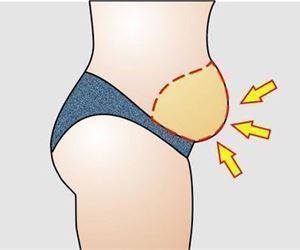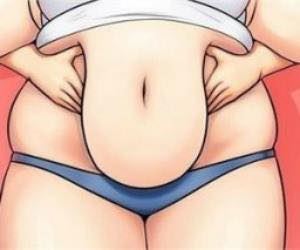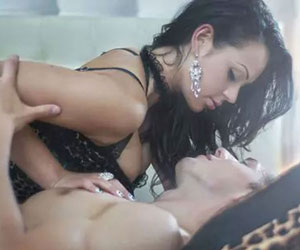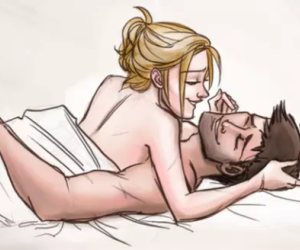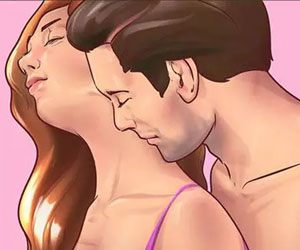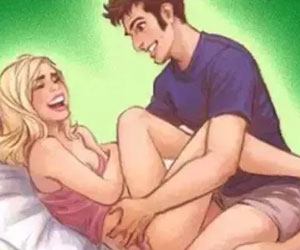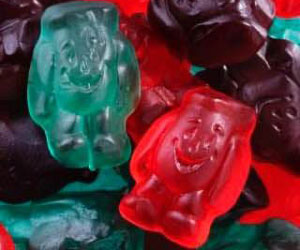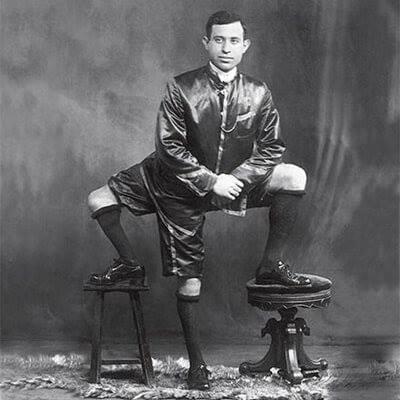The Bezold Effect

Prepare to have your mind blown. These amazing optical illusions will test your perceptions about the world.Some of these optical illusions are double images that prove that not everything is what it appears to be. Some might change the way you look at color from now on, and others just might become major military weapons.
Wilhelm von Bezold, a German meteorologist, discovered this effect that shows the same red color appearing either lighter or darker depending on the color adjacent to it. The red on the left looks lighter with the white, but on the right, it looks darker when surrounded by black. It's actually the same red.
Impossible Trident

The impossible trident, also known as a blivet, is an impossible object that appears to have three prongs, but transforms into just two prongs at the fixed end. Looking from one end to the other can be disorienting. One of its first appearances was on the cover of MAD magazine in March 1965.
Cafe Wall Illusion

Dr. Richard Gregory first observed this illusion in the tiles on the wall of a Bristol cafe (hence the name). The alternating light and dark bricks are staggered and the gray 'mortar' lines separate the layers. But while the lines may look as if they curve, they are actually straight across and parallel.
The Chubb Illusion

The Chubb Illusion reveals that the apparent contrast of an object will vary depending on the context around the presentation. The middle circles here are exactly the same, but paired with a uniform background, the circle seems to have a higher contrast than when it's surrounded by a high-contrast texture.
Magic Eye Illusions

This optical illusion takes a little more work from the eyes. Get close to the image and unfocus your eyes. Try to focus your eyes again as if you were looking past the image. A three-dimensional illusion should appear. These images, also called stereograms, prove that depth perception happens in the brain, not in the eye itself. Still haven't found the hidden image yet? Look for a skull.
Stair Banister Or People?

Do you see columns, or do you see people? The stair banister optical illusion contains easily visible columns, but in the negative space between them are silhouettes of people. This is a classic example of a double image. Sometimes it's drawn two-dimensionally, making it even harder to decipher.
Ebbinghaus Illusion

It may seem like the orange circle on the right is larger than the one on the left, but the two circles are the exact same size. In illusions like these, the space surrounding objects will deceive our eyes and make us think some things are different sizes, when really they're the same.
Impossible Elephant

At first glance, you might think this elephant is normal, but then you begin to see that it has far too many legs. But, like the impossible trident, this elephant's legs begin and end in unexpected places. Unlike the trident, the elephant doesn't quite have the same illusion of three-dimensional space.
Fraser Spiral Illusion

The Fraser Spiral is an optical illusion that tricks the brain into thinking that the black and white lines are spiraling inward. But if you trace one individual line, you can see that they are actually concentric circles and not a spiral. This illusion traces back to 1908, when psychologist Sir James Fraser discovered it.
Gray Squares

This illusion tricks your mind into thinking gray squares appear between the black squares as your eyes shift over the image, almost giving the impression that it's a moving image. The trick lies in the intense contrast between the black square and the white lines.
Impossible Cube

The 'impossible cube' or 'illogical cube' is an ambiguous object that makes us think we're looking at a three-dimensional object, when in reality it's simply a two-dimensional one. It was invented by M.C. Escher, the artist and printmaker known for illusions like the infinitely ascending stairs.
Illusory Contours

Italian psychologist Gaetano Kanizsa developed this visual illusion in which the white triangle is perceived, but it's the surrounding shapes that trick us into thinking it's there. Our eyes naturally try to fill in the gaps, finding suggestions of shapes that aren't really there.
'Liar Face'

Can you read the word that creates the drawing? If you look at the image sideways, the angry face disappears and the word 'liar,' written in script, suddenly appears. Although there are many word illusions out there, this one is only obvious when the image is turned sideways.
Lilac Chaser

This visual illusion consists of 12 lilac dots separated like the numbers on a clock, with a black cross in the middle. Each dot is blotted out briefly, for 0.1 seconds, in a clockwise rotation. If you stare at the cross, the movement of the disks is replaced by a green dot, and gaps appear throughout the circle.
Floating Leaves

This one is pretty trippy. The 'leaves' appear to move around in waves as you look at the image. The weird thing is, if you stop and stare at the image, you should get the leaves to stay still. The illusion of movement comes from the heavy contrast in the colors.
Painting Illusion

This painting is less of an optical illusion and more of a double image. The bridge slowly fades away into the sky as the clouds form the sails of an old ship. It was made by Canadian painter Rob Gonsalves, who painted dozens of other double-image paintings.
Rabbit Duck

You may have seen this one before. Do you see the rabbit first, or the duck? Is there one you don't see? The image first appeared in a German humor magazine in 1892. It reportedly inspired some deep thoughts from philosopher Ludwig Wittgenstein.
Which Way Is The Chair Facing?

At first, you think the opening of the chair is facing you, but as the man sits down, it isn't. This is actually a custom-made chair designed to fool the eye. The entire chair's left side slopes downward, while the seat is deliberately uneven. It was designed by French studio Ibride. At just the right angle from behind, the chair totally transforms.
A Photograph That Contains No Color

While this image is obviously saturated with color, the actual photograph is black and white. However, you'll notice there's a blue dot in the middle of this version. When you stare at it for just a few moments and quickly switch to the black and white version, it tricks your brain into seeing a fully colored image with green fields and blue skies.
The Müller Lyer Illusion

Does one arrow look a lot longer than the others? Yep. Is it actually a lot longer? Nope. Both lines are the same length. The Müller-Lyer Illusion was created in 1889. When the illusion was tested on indigenous peoples in Australia, they were less susceptible to the illusion than Europeans. This is most likely because Europeans are much more used to rectilinear environments.
How Many Faces?

How many faces do you see hidden in the branches on this drawing of a tree? Three? Four? The actual answer is 10. Can you spot them all?
Penrose Triangle

The Penrose Triangle is also known as the impossible triangle because it can't exist. In fact, it's not a triangle at all, simply an optical illusion that makes a different shape all together look like one. The 'triangle' from another angle:
What's In The Box?

So is this a smaller box outside a bigger one? Or is it one large box with a chunk missing from it? The trick all depends on the perspective from which you are looking at the boxes.
Dog Person Or Cat Person?

What's the first thing you see when looking at this optical illusion? According to researchers, if you see a pooch you're an extrovert, while those who see two cats are apparently more introverted.
Two Face?

How many faces do you see? If you said two, with one girl in profile, you'd be⦠wrong. It's actually just the illuminated half of one woman's face.
What Do You See?

One goblet, or two faces looking like they're about to kiss? The choice is yours.
If You're Only Seeing Two Trees...

⦠then you're not looking hard enough. Maybe that's why the woman in the optical illusion turned her back on you. Now do you see it?
Can You Read Between The Lines?

Here's a hint: When you find it, you'll realize it's all you need. At least, that's what the Beatles song says.
Mirrored

How many profiles are in this image? There are actually two, each made up of the negative space created by the profile of the other.
Mannequin Or Real?

Which Line Is Bigger?

Which Orange Circle Is Bigger?

Spinning Dancer Illusion

How Many Eyes?


